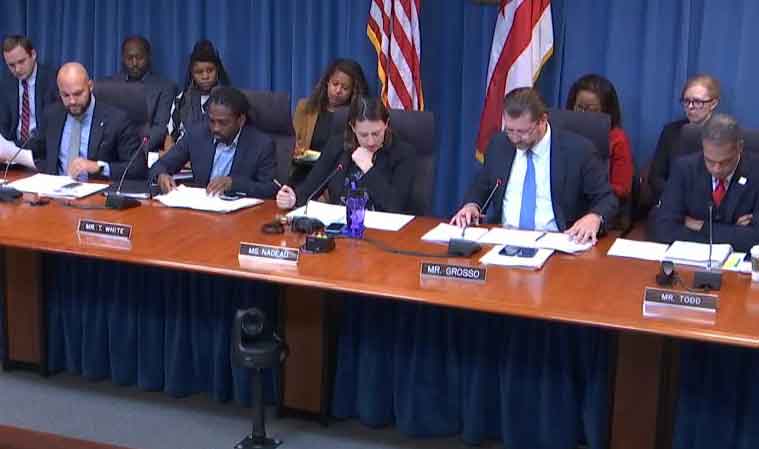The D.C. Council’s Committee on Human Services voted to pass the Homeless Services Reform Amendment Act of 2017 on Oct. 18 after significantly changing the bill. The act is meant to modernize the District’s protocol for homeless services and explicitly outline client and provider rights. The bill will be voted on by the Committee of the Whole on Nov. 7.
To access the District’s homeless services, applicants must prove their D.C. residency. The bill, as originally introduced, would have made this process stricter.
“Surrounding jurisdictions are investing a comparatively small amount into housing and human services, meaning they are almost completely reliant on federal dollars,” said Councilmember Brianne Nadeau, chair of the committee. With federal budget cuts on the horizon, she said some in city government anticipate an inflow of homeless people from Virginia and Maryland and want to more strictly filter out non-residents.
The original bill would have expanded the list of acceptable documents to prove D.C. residency, while increasing the number of documents applicants must provide, from one to two. The committee rejected the increase and altered language so that receiving assistance from a different arm of city government would be sufficient to prove residency.
At the request of Councilmember-at-Large Robert White, the bill now makes explicit that leaving the District temporarily does not mean forfeiting D.C. homeless services. If D.C. residents become homeless in the city and subsequently stay with family or friends in neighboring states, they are still eligible for services.
White emphasized that many D.C. residents, like himself, have relatives in Virginia or Maryland. “If your family’s been priced out of the city and you’re a Washingtonian and you fall on hard times, most likely you’re couch surfing with another family member in Maryland,” White said before the hearing. “I think it gets more difficult to prove your D.C. residency, but I’m not convinced those folks are not D.C. residents.”
[A hearing for public feedback was held in June]
Should the bill be passed, housing program participants could be discharged from a program if they have received the maximum assistance available, achieved permanent housing, or have increased their income such that they no longer qualify for that program.
The committee changed the appeal process for these decisions, or “program exits,” so that cases would be reviewed by independent administrative law judges instead of internally by the Department of Human Services.
The bill, as introduced, asked appellants to prove they do not have access to safe housing, but the committee shifted the burden of proof to the government. Nadeau emphasized that people in need can have trouble proving a lack of safe housing, especially if they’ve been documented in housing previously. “Residents may be wrongly turned away, as being listed on a lease or occupancy agreement,” Nadeau said. “But that alone does not give a person a right to stay in such housing.”
The committee additionally changed the bill’s definition for “at-risk of homelessness” from those earning 30 percent of the Washington area median income to those earning 40 percent of it, roughly $43,440 for a family of four. Earning this amount or less qualifies a household to access homelessness prevention services from the District, such as emergency rental assistance.
The bill, as introduced, would also have allowed city government to reevaluate a program participant’s eligibility at any time. The committee amended this language to allow the government to redetermine eligibility when a young person ages out of a youth program, when family composition changes, when a family is absent from their housing for a significant period or when a family moves into a unit they can safely inhabit. In all other cases, the government can redetermine eligibility only once every six months.
Councilmember-at-Large David Grosso presented an amendment to the bill that would create a voluntary program to help support individuals and families who have exited the city’s rapid rehousing program. “While the Department of Human Services maintains that greater than 85 percent of rapid rehousing clients do not return to shelter, I’ve heard on many occasions that people who exit the rapid rehousing program are the same or worse off than when they entered,” Grosso said. His amendment was tentatively incorporated into the bill and his office is working to evaluate its financial feasibility before the next vote.
The Homeless Services Reform Act Amendment of Act 2017 passed the Committee on Human Services 4-1. Councilmember Trayon White of Ward 8 was the only vote not in favor.
“I also hope that advocates who oppose this bill recognize that legislation requires compromise between different points of view,” said Robert White. “I know that if you don’t work with people, they will work around you.”
Hearing begins at 5:19. Video courtesy of the D.C. Council archive.








